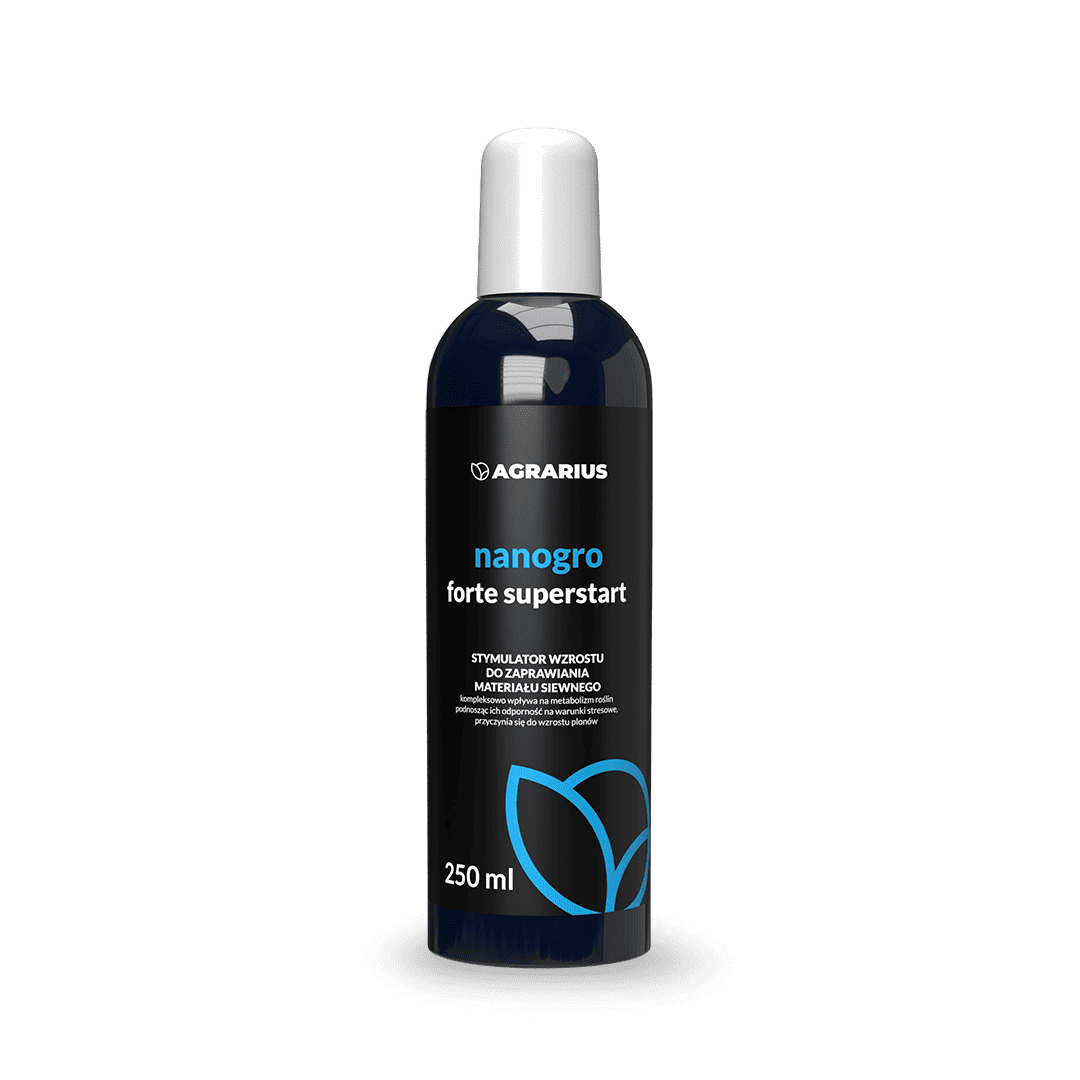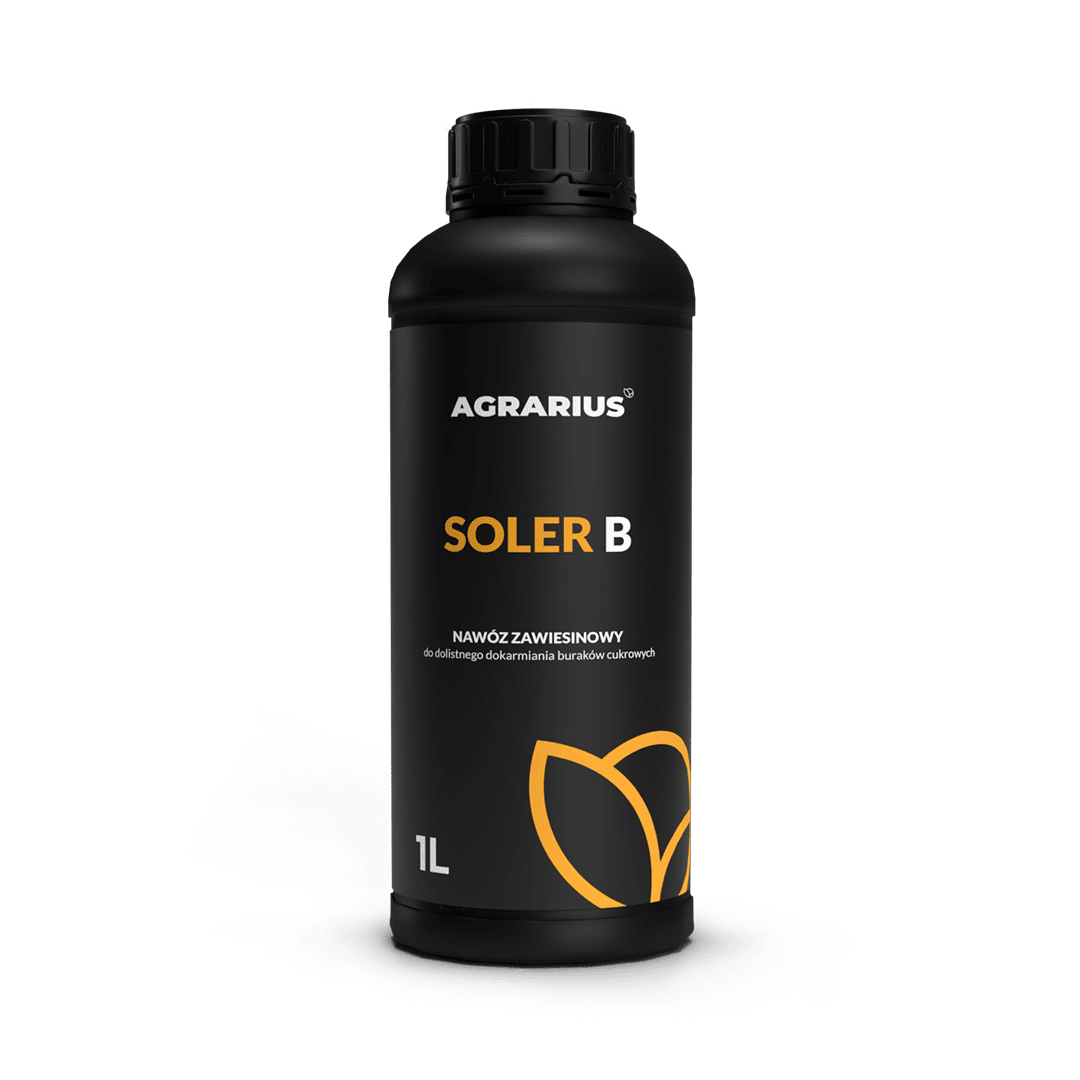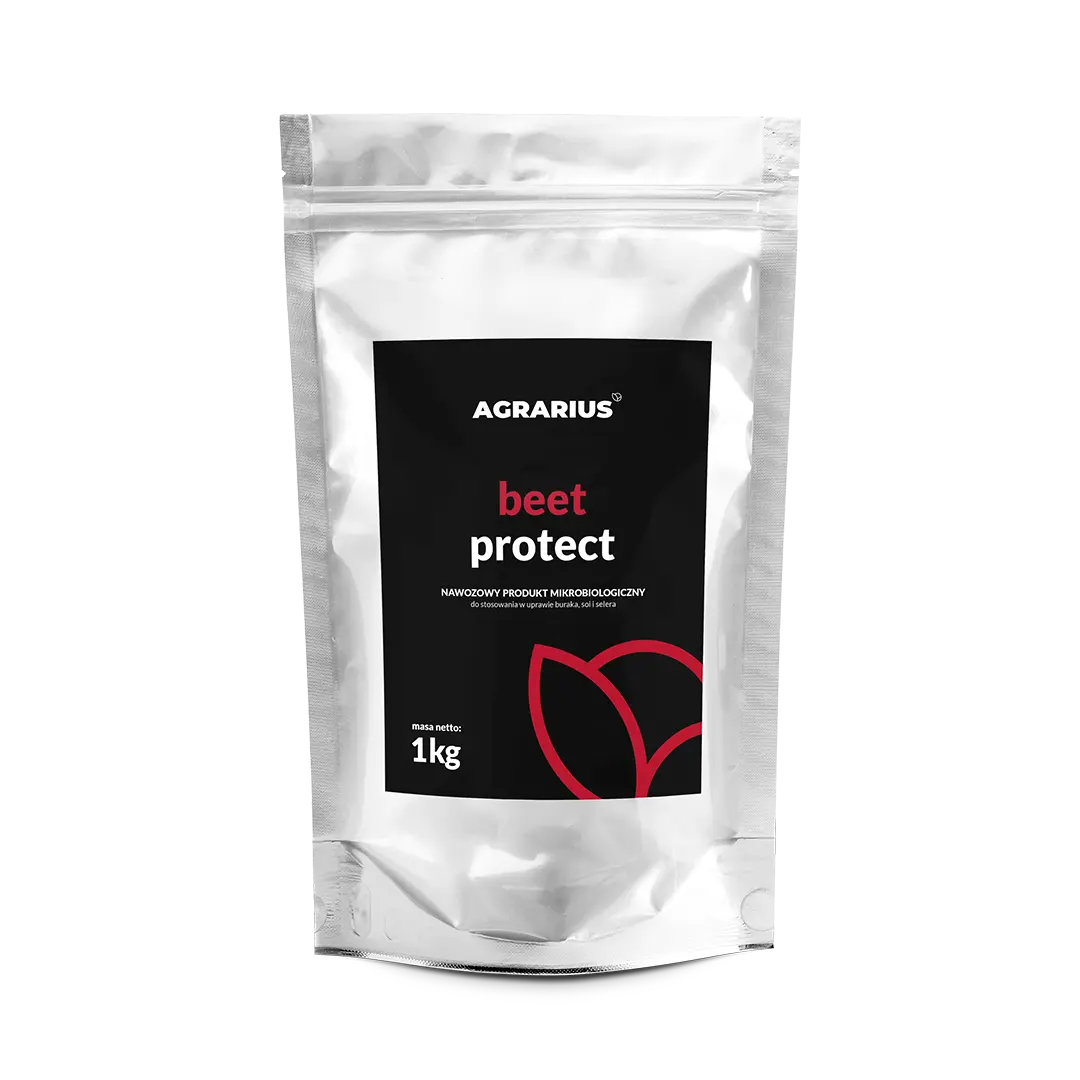bi system24
Microbiological Product with Soil Yeast Additive
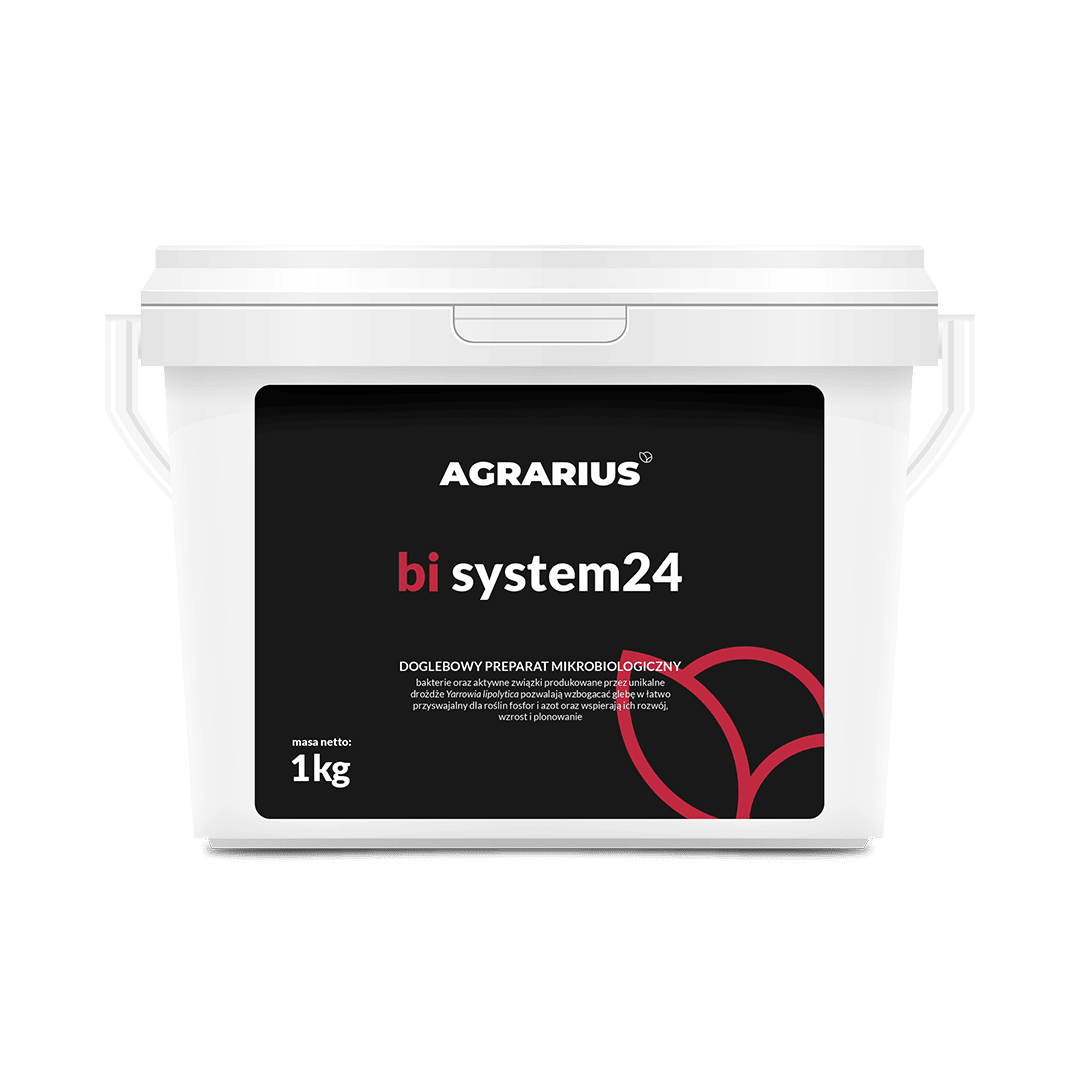
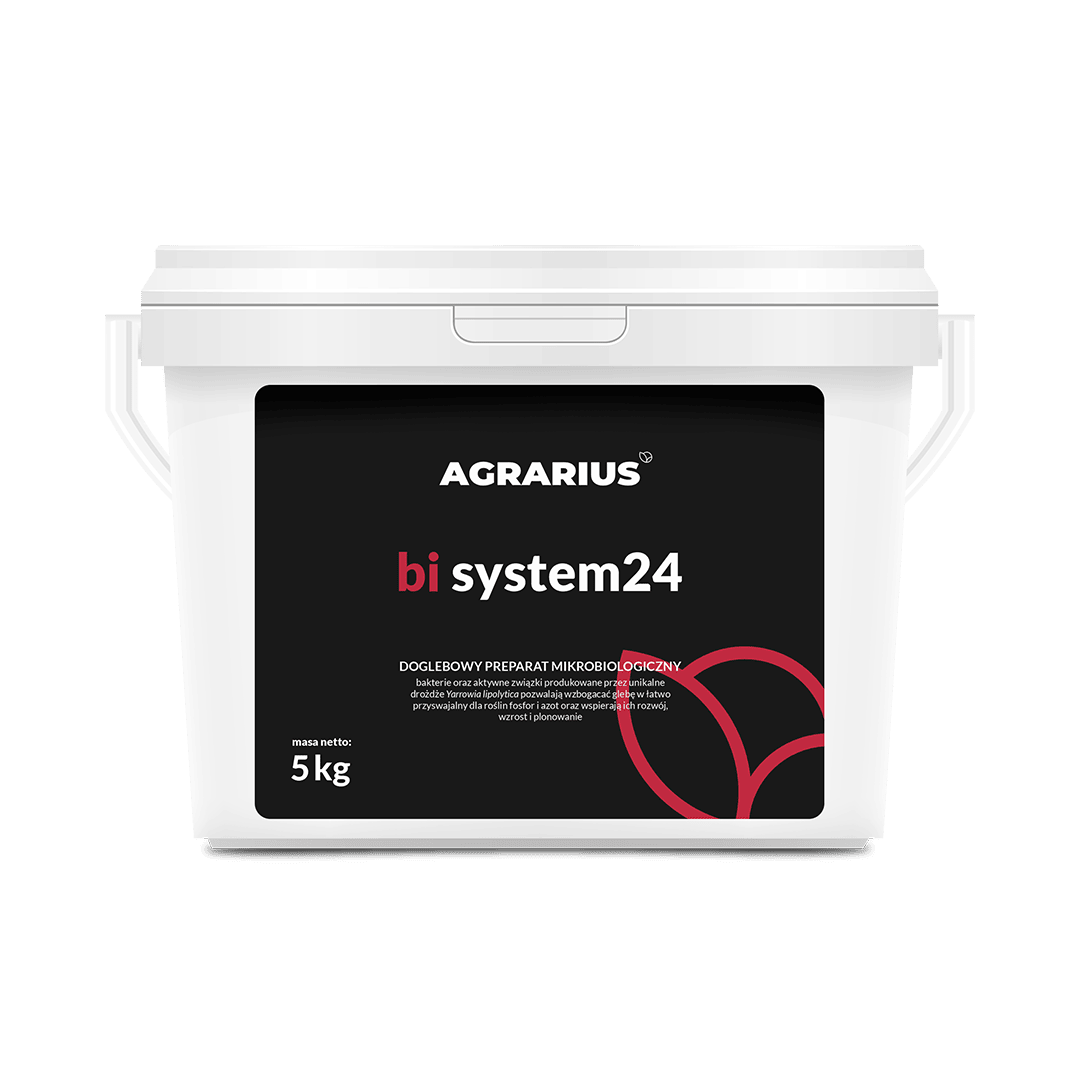
Benefits of use:
Product description:
Well-known on the market bacterial strains Bacillus azotofixans and Bacillus megaterium, capable of fixing atmospheric nitrogen and releasing phosphorus, have been enriched with a third component in the form of biomass and metabolites of Yarrowia lipolytica soil yeast. The high efficiency, backed by years of experience from two Polish companies AGRARIUS and onesano S.A., makes bi system24 significantly stand out from other products based on the potential of soil microorganisms.
Bacillus azotofixans bacteria in the bi system24 product help improve nitrogen cycling in the soil and provide plants with its assimilable forms. Additionally, it prevents the accumulation of nitrates and nitrites, ensuring continuous nitrogen supply regardless of mineral fertilization. On the other hand, Bacillus megaterium bacteria participate in the breakdown of retrograde and bound forms of phosphorus (phosphoryns and phosphonates) into readily available phosphorus for plants. Using Bacillus megaterium bacteria in agricultural crops can yield from 20 to even 40 kg of phosphorus in a pure form per hectare. This element, like nitrogen, participates in all life processes in plants and is essential for proper photosynthesis. It supports metabolism, particularly important in the formation of proteins and reserve substances such as fats and phytin.
The uniqueness of Yarrowia lipolytica soil yeast lies in their ability to produce an extremely complex range of yeast metabolites, both intracellular and extracellular active compounds. These compounds result from metabolic changes occurring in the yeast cell and include:
- Trehalose – known as the "survival sugar," which protects organisms from environmental stresses such as drought, high or low temperatures, UV radiation, or extreme osmotic pressure.
- GABA – gamma-aminobutyric acid – a non-protein amino acid that helps protect plants from abiotic stresses such as drought, heavy metals, and salinity. Gamma-aminobutyric acid plays a significant role in elongating the pollen tube, root growth, fruit ripening, and seed germination.
- Beta-glucan – possesses anti-infective properties and is also used in human supplementation.
- Alpha-ketoglutarate – an important organic acid in the TCA cycle, which participates in many reactions occurring in plant cells. It is also a crucial metabolite in carbon/nitrogen (C/N) transformations as it is needed for ammonia assimilation.
- L-Citrulline Malate – The combination of L-citrulline and malic acid affects two main physiological processes in plants:
- Malic acid ensures nitrogen transport and maintains cellular balance under environmental stresses.
- Citrulline is a strong reducer of free radicals and protects cellular enzymes from oxidative damage (oxidative stress).
- Coenzyme Q10 – This molecule has antioxidant properties and protects plants from oxidative damage caused by reactive oxygen species. Additionally, coenzyme Q10 positively influences the growth of fresh shoots and roots, promotes plant development, and affects the quantity and quality of yields.
Plant development largely depends on the availability of micro- and macroelements in the substrate. The transition from the growth phase to the generative phase of plants also depends on the appropriate level of essential nutrients. It is essential to ensure that the fertilizers used are properly selected for both the soil condition and the cultivated plant species. This crucial action significantly influences the quantity and quality of the yield. Yarrowia lipolytica yeast is a rich source not only of active substances but also of macro and micronutrients such as selenium (Se), zinc (Zn), iron (Fe), molybdenum (Mo), copper (Cu), magnesium (Mg), potassium (K), phosphorus (P), and sulfur (S).
After soil application of the bi system24, plants germinate faster and more efficiently and are more resistant to adverse environmental conditions. Plants exhibit higher content of key nutrients, resulting in higher yields and nutritional value.The undeniable advantage of this product is the influence of its active compounds such as coenzyme Q10 and gamma-aminobutyric acid on improving the health-promoting properties of plants.
In the era of low-quality food, it is crucial to focus on improving the health benefits of the produced food. Plants obtained after using the bi system24 are more abundant in compounds such as antioxidants, B-group vitamins, zinc, selenium, magnesium, and iron. Such rich in health-promoting compounds food also brings benefits to the consumer, making plants with higher health benefits more competitive in the market and preferred by customers, even at a higher price.
Bacillus megaterium, Bacillus azotofixans, and a strain of unconventional Yarrowia lipolytica soil yeast - combined in a quantity of min. 1x109 CFU per 1 gram of product.
| CROP | DOSAGE | APPLICATION |
|---|---|---|
| Field crops | 1 kg/200-350 l water/ha | 1-2 times per season (autumn, early spring) |
| Vegetables | 1-2 kg/200-600 l water/ha | 1-2 times per season (autumn, early spring) |
| Protected crops | 50 g/60-100 m² | 2-4 times per season |
| Fruit crops | 1-2 kg/200-600 l water/ha | 1-2 times per season (autumn, early spring) |
Additional information:
Microbiological product should not be used during sunny weather and drought, and should not be mixed with chemical products (fungicides).
The product is approved for use in organic farming based on the decision of IUNG in Puławy no. NE/802/2024
